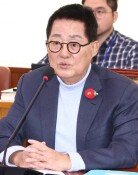Korea-U.S. rate gap widens by 1 percentage point
Korea-U.S. rate gap widens by 1 percentage point
Posted November. 04, 2022 07:55,
Updated November. 04, 2022 13:51
The Federal Reserve once again raised interest rates by 75 basis points for the fourth straight meeting on Wednesday. With the benchmark interest rate in the U.S. rising to a range of 3.75 to 4.0 percent, the highest in 15 years, the interest rate gap between Korea and the U.S. has widened to 1 percentage point. The Korea-U.S. interest rate gap reversal may drive up the won-dollar exchange rate and accelerate capital outflows, and the Bank of Korea is deeply concerned about the adverse effects of the U.S. rate hikes.
Fed Chair Jerome Powell said that time to reassess rate hikes is coming as early as the next FOMC meeting in December. Still, he reiterated that it is “very premature to think about pause” for rate hikes and that the terminal rate would be higher than the previously expected level. His comments imply that the Fed will continue to raise rates until the following year, although the size of the future rate hikes may be smaller in December, perhaps half a percentage point. The benchmark interest rate may peak until it reaches 5 percent, which is higher than the previous market expectation of mid-4 percent.
With the widening rate reversal, the BOK Monetary Policy Board meeting scheduled to take place on Nov. 25 will be critical. Even if the central bank raises the interest rate to 3.5 percent, if the U.S. Fed takes another big step of half a percentage point rate hike, the rate gap between Korea and the U.S. will still be 1 percent. The rate reversal will increase the exchange rate, driving up the prices of crude oil and the import prices of raw materials, thereby deteriorating the trade balance. The CPI rose 5.7 percent last month due to a spike in import energy prices, which increased utility prices such as electricity and gas. Inflation has continued to climb over the past six months, hovering around 5 percent. Yet prices will likely increase until the first half of 2023, making rate hikes inevitable.
However, the government and political circles have begun to ask the BOK to step down the pace of rate hikes. One PPP lawmaker criticized the recent rate hike as “sadistic,” and the FSC chairman chimed in. The central bank has even decided to supply liquidity to address the Legoland crisis, which runs counter to its restrictive monetary policy.
The rate hike inevitably entails economic recession, the burden on households to pay interest, and the restructuring of insolvent companies. This may put a political burden on the government and the ruling party. However, suppose Korea, whose economy is highly dependent on trade and whose capital market is open to the outside world, hastily decides to stop raising interest rates. At the same time, the U.S. continues to tighten its monetary policy to avoid immediate pain. In that case, the Korean economy may face a severe crisis, such as a foreign exchange crisis and a downgrade in sovereign credit ratings. The Bank of Korea must not be on the fence but stay committed to making decisions to stomp out inflation and restore the nation’s engines of growth.







